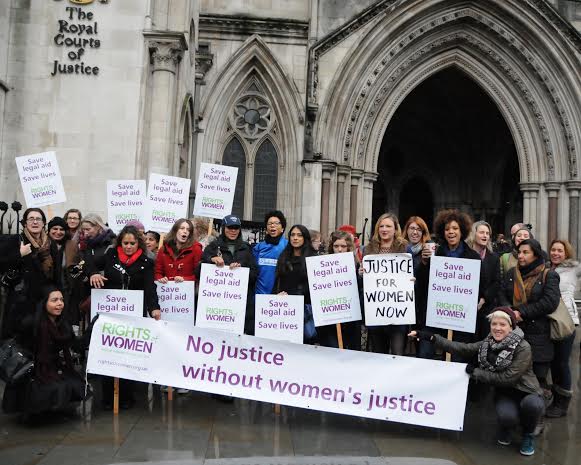Today the Court of Appeal has ruled that the strict evidence requirements needed for victims of domestic violence to seek legal aid are in fact unlawful.
Rights of Women and others have been campaigning against the evidence requirements ever since the Legal Aid, Sentencing and Punishing of Offenders Act (LASPO) came into being.
It meant that in order to apply for legal aid, an incident of domestic violence must have occurred in the last 24 months, and there was no account taken of the role of financial abuse in domestic violence. Rights of Women and others argued that the intimidation and fear experienced in cases of domestic violence have no time limit – it lasts longer than two years. Providing sufficient evidence of financial abuse was also incredibly difficult.
The Court found the 24-month evidence requirement “arbitrary” and said it did not fulfil the law’s purpose of ensuring legal aid is available to domestic violence victims. It also lamented how there was no ‘safety-valve’ where women could explain why they were unable to produce the information.
This decision is hugely important for ensuring some of the poorest and most vulnerable in society without access to help get what they need. Although the Government may appeal to the Supreme Court to try to overturn the decision, the Court of Appeal’s ruling is a massive step in the right direction.
Legal aid is an important part of the right to a fair trial. Check out our explainer here. Government must also protect our right to not suffer degrading or inhuman treatment. See our lovely poster here.







